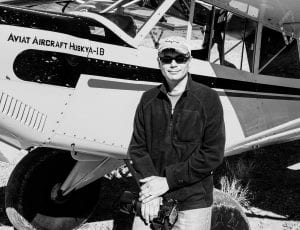FREQUENTLY ASKED QUESTIONS

What are Dr. Kirk’s qualifications?
After a long career working in psychiatric and substance use emergency and hospital care, Dr. Gregory Kirk began seeing pilots in 2012 through Rocky Mountain Psychiatry Consultants. In 2017, I formed Aviation Psychiatry, LLC and in 2020 expanded to Nevada.
I work with pilots from every legacy carrier, many regional carriers, corporate medical departments, and the large pilot unions. I also work with military pilots transitioning to civilian flight, general aviators, flight students, and ATCs. I do a few hundred HIMS evaluations per year as a busy practitioner in aviation medicine.
Apart from aviation, I work with the National Basketball Association, the National Football League, and am an expert in suicide and unintentional death from mental health disorders, behavioral problems, and substance use.
You can read more about my qualifications by clicking the photo.
Can I make an appointment?
My APPOINTMENTS for Denver and Las Vegas are scheduled online. I see DENVER PILOTS in my beautiful City Park West office in downtown Denver. In Nevada, I see LAS VEGAS PILOTS in my Town Square Las Vegas office, conveniently located across the southwest corner Las Vegas Boulevard (aka, the Strip) and Harry Reid International Airport.
Will my insurance pay for the eval?
An insurance policy is an agreement between you and a business or government entity. The language of the contract determines eligibility for reimbursement. That said, most health insurance contracts pay for medical diagnosis, management, and treatment. An FAA evaluation is an independent evaluation and does not create a patient-to-physician relationship. A regulatory interpretation, instead of an ICD or DSM 5 diagnosis, is the key to an aviation evaluation.
Without a CPT code (a treatment code) and an ICD diagnosis, it’s hard to get your company to reimburse the fee. On the other hand, you may be eligible to pay for the assessment using a Health Savings Account. Your eligibility to use an HSA is also defined in a contract between you and a private entity but reimbursement rules are more liberal.
You can read more about this here: FEES
What will it cost?
These evaluations are complex and require far more effort than a typical 45-minute visit with a clinical psychiatrist. The FAA’s standards are formidable, and the psychiatrist must be an expert with DSM-5, including mental illness with substance use disorders, published FAA regulations, legal precedent involving aeromedical certification, and changes to FAA policy and procedure. A typical evaluation, review, and report takes between 9 and 11 hours. I publish a page about typical fees.
Dr. Kirk is dually board certified by the American Board of Psychiatry and Neurology in Adult Psychiatry and Addiction Psychiatry and sees a few hundred pilot cases per year. Since 2000, Dr. Kirk has also conducted forensic assessment of deaths, injuries, other types of violence, and institutional standards associated with mental illness and substance use disorders.
How long does it take to finish my case?
If I have all of your records before we start the assessment, it takes me around six weeks after your visit to finish your report.
Securing records is the main bottleneck in completing an evaluation. A careful registration as soon as possible allows us to identify right away the records you will need to request.
You can read more by going here: https://www.aviationpsychiatry.com/timelines
What kind of paperwork does Dr. Kirk need?
Along with the one-on-one assessment, reviewing background records is the other main important task for the psychiatrist. The FAA requires a deep dive into all records that may be important. Clinical summaries or letters from your physician are not satisfactory.
I can help sort out which records you need after you register.
You can read more about producing medical records by going here: https://www.aviationpsychiatry.com/records/medical
To read about producing mental health records, go here: https://www.aviationpsychiatry.com/records/mentalhealth
Can I do a virtual visit?
New Information as of January 2025:
I’ll leave the old descriptor up for a while to explain my previous thinking:
There are two important reasons why I do not offer virtual assessments for initial assessments.
The first involves the FAA.
In July 2020, Federal Air Surgeon Dr. Michael Berry allowed virtual psychiatric appointments solely as mitigation against the coronavirus pandemic. Federal Air Surgeon Dr. Susan Northrup initially continued the policy after succeeding Dr. Berry.
With wide availability of vaccines, re-opening of travel, and relaxation of other pandemic measures, the FAA’s Chief Psychiatrist and Assistant Chief Psychiatrist advised in April 2022 that in-person visits remain the gold standard. Virtual visits with video have not been banned but are discouraged by the FAA. I see a handful of cases every year because the FAA rejected some other psychiatrists’ virtual evaluation as not suitable for a pilot’s aviation assessment.
The second reason, equally as important, has to do with state-by-state regulation on medical practices.
For civilian populations, the individual states and territories administer medical licenses. Historically, the location of care has been defined by the location of the client, not the doctor. In other words, your doctor must have a medical license in the state where the client sits during a virtual appointment. At the peak of the pandemic, the individual states with the federal government’s encouragement relaxed the rules for a while. But now, the practice-of-medicine waivers have been revoked and we are back to the historical status quo. Your virtual doctor must have a license in the state where the client sits during the appointment.
I had a DUI. What now?
If you currently hold a medical certificate, be sure you understand Rule 61.15 about the FAA’s 60-day reporting requirements.
If you are a professional pilot, you should contact your union representative, your AME, or reach out to your Employee Assistance Program.
If you had a high alcohol level, especially one greater than 0.200 BAC or the equivalent blood level, the FAA will more likely than not look for the pilot to engage a HIMS program. This is the most efficient path to returning to the cockpit if you had a high BAC.
To read more about the records you need for an evaluation: FAQ about DUI Records
To read more from our friends at AMAS, you can redirect to their DUI/DWAI page.

